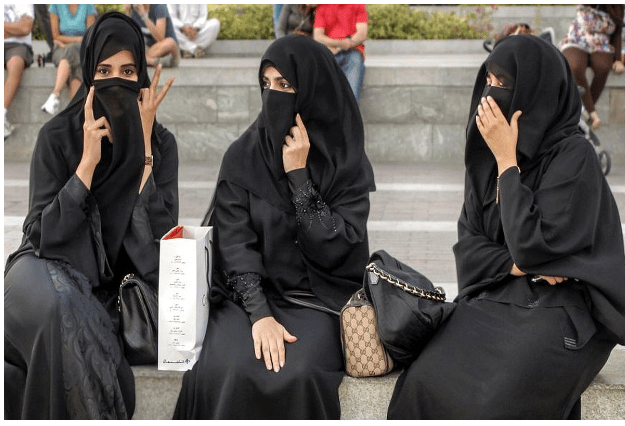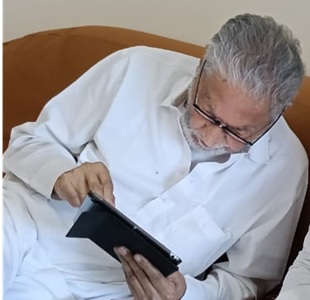Zeenat Shaukat Ali’s controversial article, Is wearing of hijab mandated by religion?’ published in The Times of India, triggered outrage among large sections of Muslims as well as people holding on to values of human rights and individual liberty. Placating their concerns, the Muslim Mirror carried a rebuttal to her article by Aazeen F. Kirmani on February 14. However, Kirmani’s article also met with huge response and reactions prompting noted human rights defender Javed Anand to offer a rejoinder to her article. We are publishing it here to give broader view of the debate around the ongoing row over hijab, chiefly triggered by the right wing groups as well as the current dispensation.
By Javed Anand
Aazeen F. Kirmani in her rebuttal published in Muslim Mirror of Zeenat Shaukatali’s piece in The Times of India, argues that the writer (Shaukat Ali) is not a Islamic scholar though she claims to be so. As for herself Kirmani states: “I am not a scholar and I depend on authentic Islamic scholars and jurists for my understanding and practice of Islam”.
According to her, “The difference of opinion among Islamic jurists is only in regard to the covering of face and hands… As for covering of the rest of the female body along with the head there is complete unanimity among the jurists and the record has been set straight centuries ago”.
In her own words, therefore, Kirmani is among those Muslims who subscribe to the principle of taqlid. Literally speaking Taqlid means “to follow (someone)”, “to imitate”. The Merriam-Webster gives its meaning as “uncritical and unqualified acceptance of a traditional orthodoxy or of an authoritarian code of a particular religious leader”.
Quite clearly then it’s evident that Shaukatali and Kirmani inhabit two radically different intellectual universes. The former clearly is no muqallid but a person who believes in critical thinking and independent reasoning while the latter stands committed to what has been settled centuries ago. Shaukatali prefers to read the Qur’an , Hadith, Islamic history and tradition for herself while Kirmani’s understanding of Islam, by her own admission, is frozen in time.
Like Kirmani I too am no scholar of Islam. But I do use both my common sense and my rational capacity to read, think and introspect.
Common sense and even a cursory knowledge of history tells me that if the millennial-old patriarchy that cuts across religions and cultures survives in the 21st century, to think that Kirmani’s “authentic scholars and jurists of Islam” who walked the earth a thousand years ago lived were untainted by patriarchal values is to defy both reason and logic. The Qur’an did provide a moral compass, pointed to the direction towards gender justice and gender equality. But the scholars and jurists who read and interpreted the Word to the believers centuries ago could not but operate within the limits defined by their time and cultural space.
That was then. Were Kirmani only to open her locked mind, a little effort will establish that in the world we today inhabit there is a growing tribe of authentic, believing scholars of Islam, both men and women, who are reading the Qur’an things as was simply impossible to the patriarchal scholars and jurists of the bygone era. Zeenat Shaukatali is part of what is best summed up in the title of a recent book by the scholar Mustafa Akyol: ‘Reopening Muslim Minds: A return to reason, freedom and tolerance’.
For reasons of time and space, allow me to quote at some length only two such scholars, a female and a male, both living in our midst. I refer to Amina Wadud, author of ‘Qur’an and Women: Reading the Sacred Text from a Women’s Perspective’ and ‘Inside the Gender Jihad’. And to Dr Khaled Abu Al Fadl, author of numerous books, including ‘The Great Theft: Wrestling Islam from the Extremists’.
Amina Wadud on the Sharia: “From my perspective, Sharia is thoroughly patriarchal … You cannot legislate with regard to the well-being of women without women as agents of their own definition. And Sharia was not concerned with that construction. Sharia was happy to legislate for women, even to define what is the proper role of women, and to do so without women as participants. So obviously that is a major flaw. And the only way for that aspect of Sharia to be corrected would be a radical reform in the way in which it is thought”.
Amina Wadud on Hijab: “I think that Islamic codes of dress, particularly the most common identified feature of Islamic dress for women, which is the head covering or the hijab, is a strong symbol that many factions of Islamic society will revolve itself around with many different intentions and with many different expectations. If the overall thrust of Islam with regard to social decorum is one of modesty, the idea that you can associate modesty with any singular item of dress is ludicrous. So the idea of struggling with modesty is in fact the element that is Islamic. And that the hijab might be one of the ways in which this modesty has manifest itself does not mean that modesty is equal to the hijab. The hijab has no hierarchy over the concept of modesty.
Dr. Khaled Abou El Fadl: From his fatwa on the hijab: “In my opinion, hijab in this country (USA) is clearly not a fard and no sin is acquired for failing to wear the hijab. The reason for this position is that the ‘illa (operative cause) for hijab was to protect women from harm and to avoid bringing undue attention to them. In the United States, hijab often results in the exact opposite, in other words, bringing undue attention to a Muslim woman and heightening the risk of harm. To say the least, in my opinion, hijab is not at the core of the Islamic faith, and not the kind of arguable duty that would be worth risking one’s safety for… I never advise a Muslima to wear the hijab in the U.S. nor am I keen on raising it as an issue of significance for a woman’s deen. If a woman does wear a hijab in the West and harm does come to her, that gives me serious pause (meaning I am troubled by the fact that the very purpose of the possible rule is now completely contravened). And in all cases, God knows best”.






0 Comments